R. Wagner Opera "Tannhäuser"
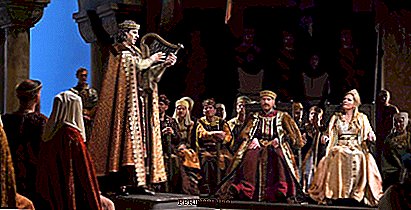
Richard Wagner considered Tannhäuser his worst opera and tried to rewrite it until the end of his life. However, the modern viewer thinks differently, filling the theaters more than 400 times a year on those evenings when its name appears on posters. Probably, Wagner I did not expect that the child he so unloved would take the fourth line among all his operas, beating in popularity the much more perfect Parsifal andNibelung ring".
Summary of the Wagner OperaTannhauser"and many interesting facts about this work read on our page.
Characters | Vote | Description |
| Tannhauser | tenor | minnesinger |
| Venus | soprano | The goddess of love |
| Herman | bass | Landgrain of Thuringia |
| Elizabeth | soprano | his niece |
| Wolfram von Eschenbach | baritone | friend Tannhäuser |
Summary of "Tannhauser"
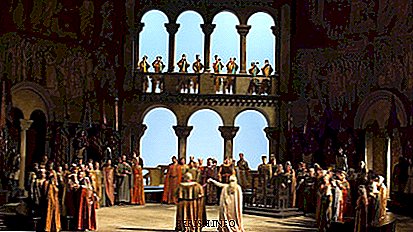
Thuringia, early 13th century.
Once, Tannhäuser fell into the grotto of Venus, where he lived in idleness, fun, and an endless series of peers. But now it has ceased to bring him pleasure, and he asked Venus to release him into the world of mere mortals. The goddess refused to let the poet go, then he called for help the Holy Virgin, one name of which destroyed the magical power of Venus. Tannhäuser finds himself in the spring valley in front of the Wartburg castle.
Herman returns to the castle after hunting, surrounded by knights and minnesingers. They meet Tannhäuser, who has long been considered missing. Wolfram von Eschenbach reminds the hero of his earthly lover, Elizabeth, who did not forget him and did not attend a single singing contest after his disappearance. Only for the sake of the girl Tannhäuser returns to the court of Wartburg.
Song Hall of the Wartburg Castle. Elizabeth in anticipation of meeting with Tannhäuser. Wolfram, despite the fact that he himself is in love with a girl, leads the poet in her. She confesses how sad she was without him. The song bout begins. Herman appears in the hall, announcing that the winner of the contest will get the hand of his niece. While rivals sing about enthusiastic and romantic love, Tannhauser extols sensual and passionate love by singing the hymn to Venus. The public is terrified of such blasphemy. The intercession of Elizabeth rescues Tannhäuser from immediate reprisals, but as a punishment the landgraf tells him to go with pilgrims to Rome for the forgiveness of his sins by the Holy See.
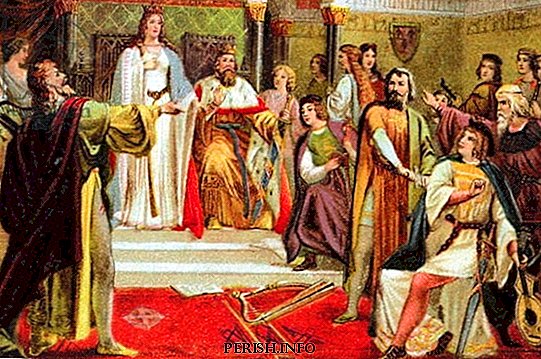
Autumn has come. Elizabeth was exhausted in anticipation of Tannhäuser. Pilgrims return, but there is no lover among them. The girl is losing strength, she does not see the point of living. At night, Wolfram meets the exhausted Tannhäuser. He says that he could not get forgiveness in Rome, on the contrary, the Pope said that the apostate would suffer the torments of Hell until the old papal staff blossoms. Tannhäuser wants to return to the grotto of Venus, but Wolfram reminds him of Elizabeth - the funeral procession with her body is passing by. Tannhäuser, seeing her, drops dead. Young pilgrims come back from Rome, they carry a miracle — the Pope’s staff, on which young growth grows green — a living symbol of the salvation of the soul of Tannhäuser.
| Duration of performance | ||
| I Act | Act II | Act III |
| 75 min. | 75 min. | 60 min |
A photo
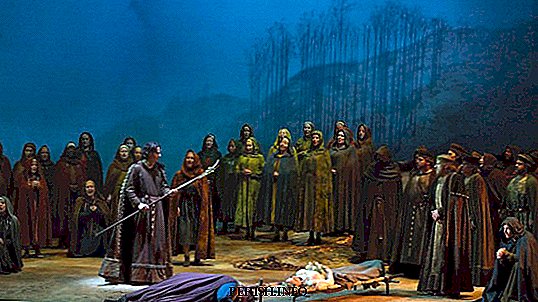
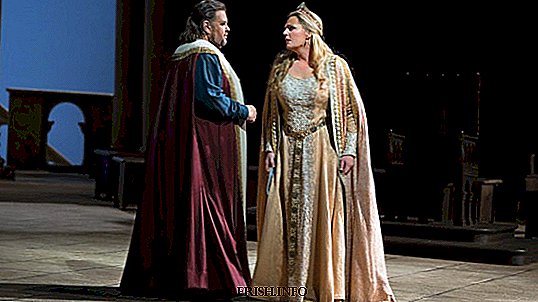
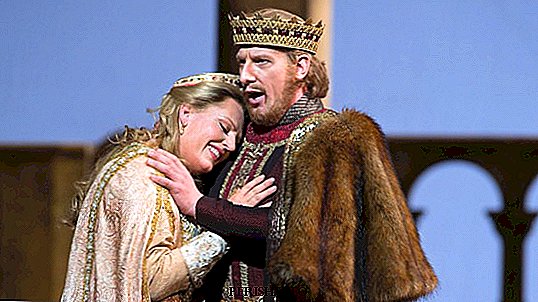
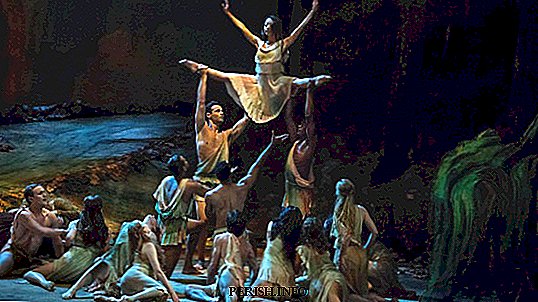
Interesting Facts
- The premiere of "Tannhäuser" was scheduled for October 13, 1845 - the birthday of the composer's niece Johanna Wagner, who sang the part of Elizabeth. Due to the illness of the birthday girl, the performance was postponed for 6 days.
- The part of Venus at the Dresden premiere was performed by Wilhelmina Schroeder-Devrient, the famous German opera diva of those years. She took part in two other Wagner premieres, starring Adriano in Rienzi and Senty in Flying Dutchman. The second wave of popularity came to Wilhelmina after her death, when the memoirs of the Singer's Memoirs were published, in which she described in detail her real and imaginary sexual connections.
- In the "Parisian" versions of the opera, famous choreographers are often invited to design the first act. Dancing in the "Tannhauser" of different years and put Isadora Duncan, and John Neumayer.
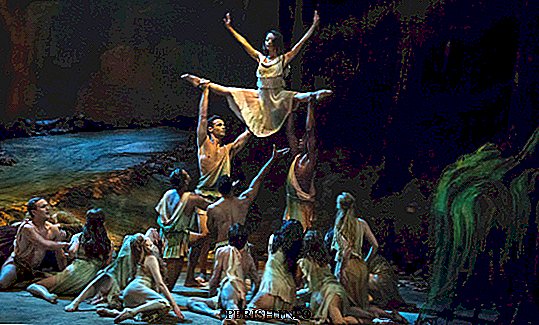
- The “Parisian” version of the opera is now called not quite Parisian, but the one that was made on the basis of the French version for the 1875 production in Vienna.
- The part of Venus is often sung by mezzo-soprano.
- In some productions, one actress performs Venus and Elizabeth, which explains the impossibility of choosing the path by Tannhauser - for him both women personify two inseparable sides of love.
- Sometimes directors compile from different versions of the opera, so that in one performance scenes can be performed in both French and German.
- At the Novosibirsk Opera and Ballet Theater after the premiere of "Tannhäuser" in 2015, a scandal broke out - against the director Timofei Kulyabin and theater director Boris Mezdrich an administrative case was initiated under the article "Desecration of objects of a religious cult". The first scene in the grotto of Venus was solved in the form of an erotic film set, and the makeup of Tannhauser made him look like Jesus Christ. The court did not find in the formulation of the crime, however after a few months it was removed from the repertoire, and the theater director was removed from the post.
- Novat is not the first theater in which "Tannhäuser" is staged with an emphasis on the sensual component. In 2008, the Paris Opera presented a play by Robert Carson, in which Venus was naked on stage, and her grotto turned out to be full of erotic pictures of French masters of the 19th century.
Popular arias from the opera "Tannhäuser"
"O, du, mein holder" - Wolfram's romance (listen)
"Dich, teure Halle" - Elizabeth's aria (listen)
The history of the creation and productions of "Tannhäuser"
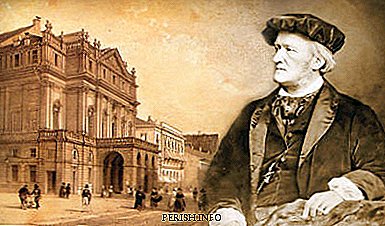
The origins of the libretto of the opera lie in a dozen versions of the legends about Tannhäuser and the contest of singers in the Wartburg Romantic era. Almost all German poets and writers of that time somehow used these plots: the novel by Heinrich von Ofterdingen, the fairy tales "Tannhäuser", "Hörselberg", "The Faithful Eckart", "The Wartburg Contest" from the collection of German legends the Grimm brothers, the novel L Tika "Faithful Eckart and Tannhäuser", compilation "Legends of Thuringia" by L. Bechstein, short story by E. T.A. Hoffmann "The Contest of Singers" and the ironic poem of Heine "Tannhäuser".
The discovery made in the novel "The Wartburg Contest" by K.T.L. Lucas, gave Wagner idea to unite different myths: Lukas argued that the main character of the "Wartburg Contest" Heinrich von Ofterdingen is none other than Tannhäuser. Another key idea was to join the story line love Tangeiser and Elizabeth. Historical Elizabeth was the daughter of the King of Hungary, the wife of the son of Landgraf Thuringia Herman and after death was counted among the Faces of the Saints.
The juxtaposition of two women - the sensual, carnal Venus and the pure, exalted Elizabeth - was the personification of the poet's inner rebellion between earthly and heavenly, spirit and body. The hero never found himself in the world of any of his beloved, finding peace only in death.
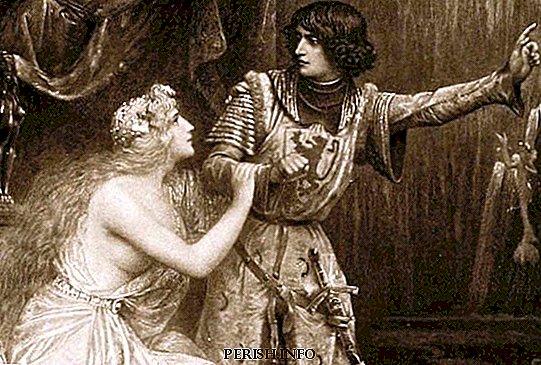
The inspiration to work precisely on this plot to Wagner came in 1842 on the road from Paris to Dresden: the maestro passing by Wartburg admired the majestic view of the castle in the rays of the rising sun, and he began to think about the plot that could unfold in these decorations. Subsequently, it was with these two cities that "Tannhauser" became inextricably linked, since two versions of the opera, Dresden and Paris, were published. For Wagner, however, there was no such separation, the only version he considered the last, the Parisian one. In the finals of the original Dresden version, which was given during the 13 premiere evenings in 1845, the funeral bells sounded amid a red twinkle coming from the grotto of Venus in the distance. Two years later, in Dresden, at the end of the opera, a funeral procession appeared. When Wagner did the revision of the opera for Paris at the end of 1860, he rewrote and re-recorded the music from the first scene, the grotto of Venus, in particular, added ballet to it. In addition, the opera was in French - an assumption unheard of for Wagner, which he never again repeated.
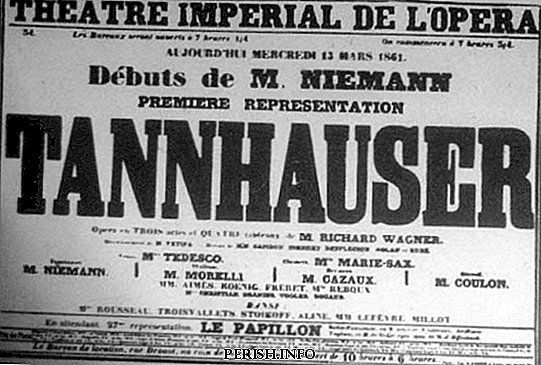
If the performances in Dresden collected an ambiguous reaction, but the result of the shows as a whole can be called positive, then the Paris premiere of 1861 was an absolute failure and scandal. Wagner took the opera from the theater after the third performance, despite the huge amount of effort spent on his production - the maestro spent 164 rehearsals! In Russia, the opera appeared immediately on the stage of the Mariinsky Theater in 1874 (F. Nikolsky in the party of Tannhäuser, J. Platonov - Elizabeth). In 1889, "Tannhauser" was first set overseas, in the Metropolitan Opera. And in Wagner’s own theater, in Bayreuth, it sounded after the author’s death, in 1891.
"Tannhauser" on video
The performances of opera from different years can be seen in the recording:
- The performance of the Metropolitan Opera, New York, 2015, conductor J. Levine, in the main parts: J. Botha (Tannhäuser), M. de Young (Venus), E-M. Westbrook (Elizabeth)
- Performance of Liceu Theater, Barcelona, 2012, conductor S. Weigl, in the main parts: P. Seyfert, B. Uriah-Monzon, P. M. Schnitzer.
- Performance of the Bavarian National Opera, Munich, 1994, conductor Z. Mehta, in the main parts: R. Kollo, V. Meyer, N. Secunda.
- Performance by the Festspielhaus in Bayreuth, 1978, conducted by C. Davis, in major roles: S. Venkov, G. Jones.
Opera music sounds on movie soundtracks:

- "Father's chair", 2012
- Corpse Bride, 2005
- Moloch, 1999
- "The People Against Larry Flynt", 1996
- "The night of the generals", 1966
- "Citizen Kane", 1941
Before you start working on the opera Wagner studied the history of Germany and the legends of its people. At first, he wanted to write the libretto about Manfred, the son of Frederick II, inspired by the charm of the German Middle Ages. But when he appeared before the master’s inner eye Tannhauser, he immediately - and forever - rejected all historical subjects. From now on, the composer will work only on mythological themes - they give more room for imagination and creative disclosure of characters.

Leave Your Comment